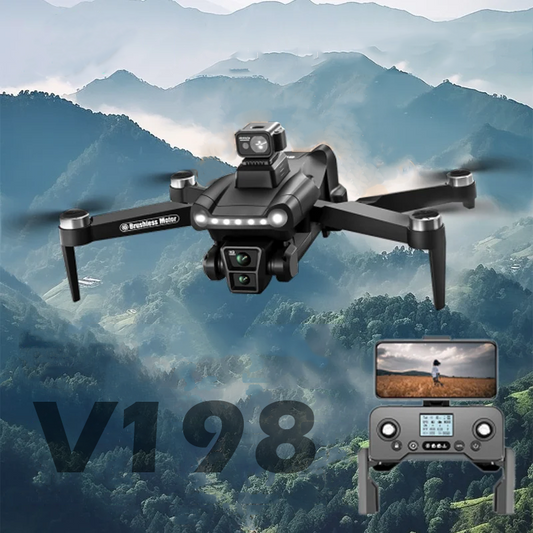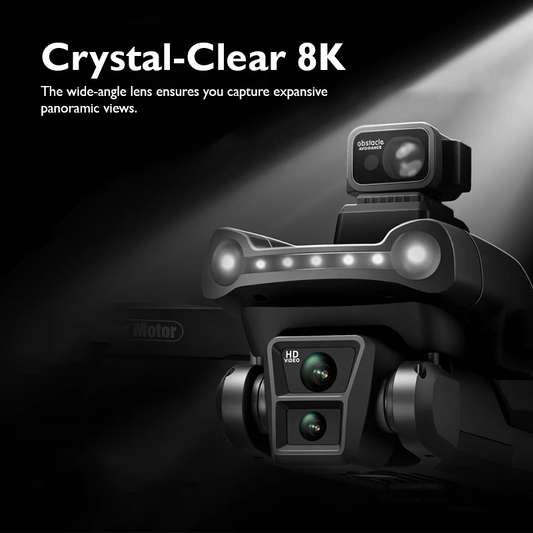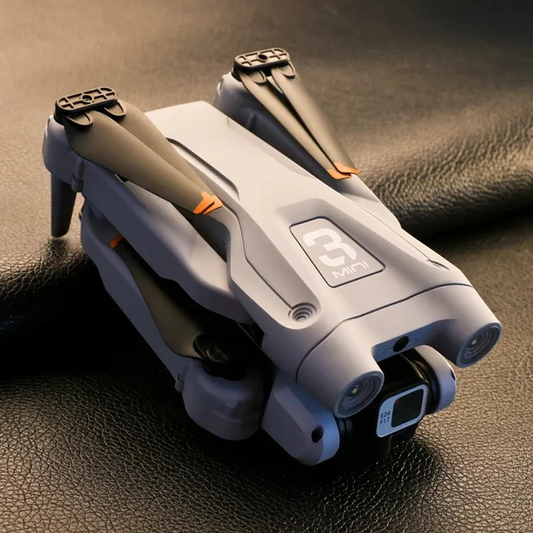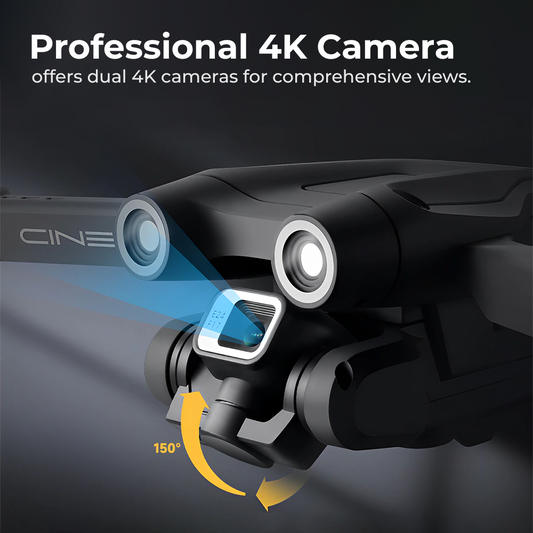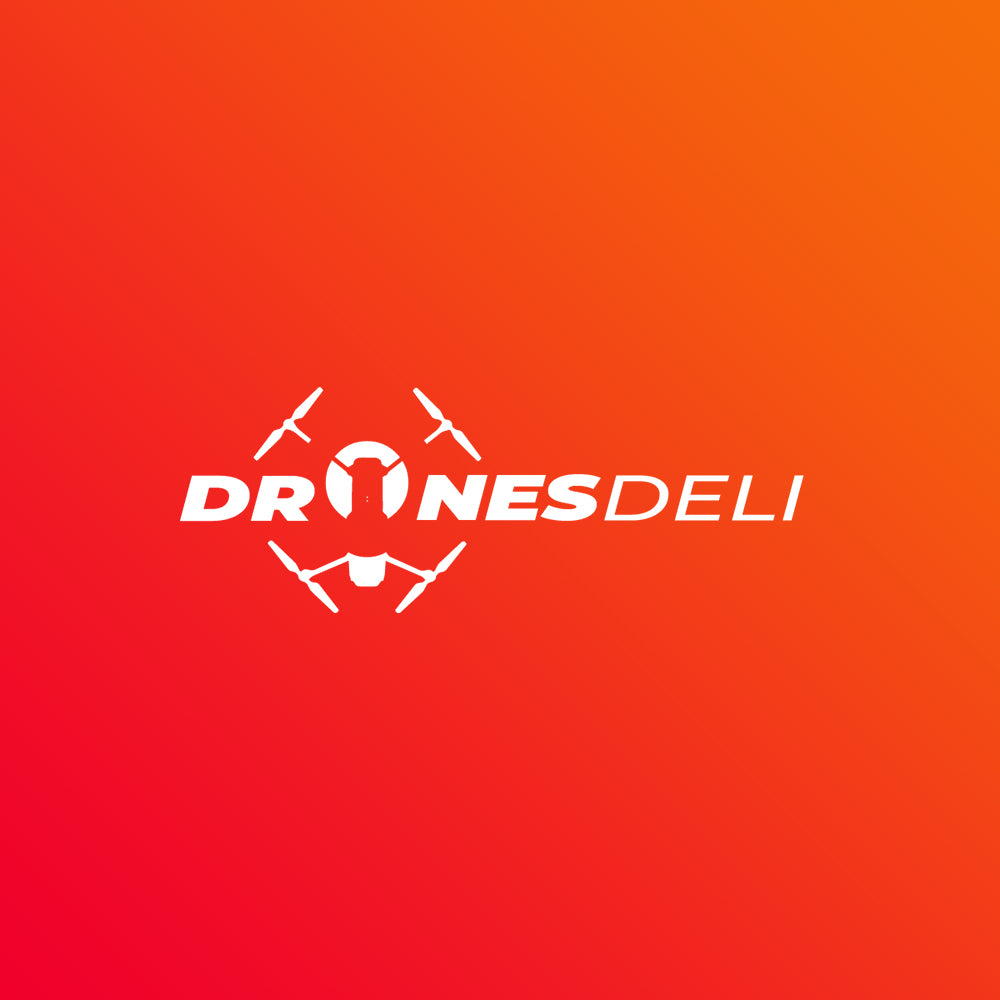The Legal Aspects of Flying Camera Drones

In recent years, the skies have become dotted with small, buzzing aircraft capturing breathtaking aerial footage – camera drones. These unmanned aerial vehicles (UAVs) have revolutionized various industries, from filmmaking and photography to agriculture and surveying. However, with the rise in popularity of drones comes a complex web of legal considerations. Whether you are a hobbyist or a professional drone pilot, it's crucial to understand the legal aspects of flying camera drones to ensure compliance with regulations and avoid legal pitfalls.
Understanding the Regulatory Landscape

The regulatory landscape for flying camera drones varies from country to country. In the United States, for instance, the Federal Aviation Administration (FAA) oversees drone regulations. It's essential to familiarize yourself with the specific regulations applicable to your location to avoid any legal issues.
1.Registration Requirements
One of the fundamental legal aspects of flying camera drones is registration. In many countries, including the United States, drone operators are required to register their drones with the relevant aviation authority. This process involves providing information about the drone and obtaining a unique registration number. Failure to register a drone may result in penalties and legal consequences.
2.Pilot Certification

In addition to registering the drone, drone pilots may need to obtain certification or a license, depending on the drone's size and purpose. In the U.S., the FAA requires Part 107 certification for commercial drone pilots. This certification involves passing a written exam that covers various topics, including airspace regulations, weather, and safety procedures. Understanding and adhering to these certification requirements are crucial for anyone looking to use a camera drone for commercial purposes.
3.No-Fly Zones and Restricted Areas

Drone operators must be aware of designated no-fly zones and restricted areas. Flying in these areas, such as near airports or government facilities, is strictly prohibited and may lead to severe legal consequences. Utilizing geo-fencing technology, many drones are programmed to prevent flying in these restricted zones. However, it's the responsibility of the drone operator to stay informed about any temporary restrictions or changes in regulations that may affect their flight plans.
4.Privacy Concerns

Privacy is a significant legal consideration when it comes to flying camera drones. Capturing images or videos of people without their consent may infringe on their privacy rights. It's crucial for drone operators to be mindful of the ethical and legal implications of their flights, especially when flying over private property or in residential areas. Being respectful of privacy laws can help prevent legal disputes and maintain a positive public perception of drone use.
5.Liability and Insurance
Accidents can happen, and drone operators must be prepared for the potential legal consequences. Obtaining liability insurance for your drone is a prudent step to protect yourself from financial liabilities in the event of an accident or damage caused by your drone. Some countries may even require drone operators to have insurance coverage. It's essential to research and choose a reputable insurance provider that offers coverage tailored to drone operations.
6.Commercial Use and Licensing
If you plan to use your camera drone for commercial purposes, additional legal considerations come into play. Many countries require a specific commercial license or permit for drone operators engaging in business activities. Commercial drone pilots may need to undergo additional training, obtain special permissions, and adhere to stricter regulations to ensure the safety of the public and the airspace.
7.Intellectual Property Issues
Drone operators capturing unique and creative footage should be aware of potential intellectual property issues. If you plan to use drone-captured content for commercial purposes, you must ensure that you have the necessary permissions and licenses for any copyrighted material, including music, images, or trademarks. Failing to obtain the proper licenses could lead to legal action and financial consequences.
8.International Considerations

For drone operators who travel internationally or conduct cross-border operations, understanding and complying with the drone regulations of different countries is essential. Each country may have its own set of rules and requirements, and ignorance of these regulations is not an acceptable defense. Researching and adhering to the specific drone laws of each country you plan to operate in is crucial to avoid legal complications.
9.Emerging Technologies and Future Regulations

As drone technology continues to advance, so too will the regulations governing their use. Government authorities worldwide are constantly adapting and updating drone regulations to address emerging challenges and ensure the safe integration of drones into airspace. Drone operators should stay informed about changes in regulations, new technologies, and advancements in the industry to remain compliant with the law.
Camera Drones
As camera drones soar to new heights in popularity, understanding the legal aspects of flying them is more critical than ever. From registration and certification to privacy concerns and international regulations, drone operators must navigate a complex web of laws to ensure safe and lawful operations. By staying informed, obtaining the necessary certifications, and prioritizing safety and privacy, drone enthusiasts and professionals alike can enjoy the thrilling experience of flying camera drones while avoiding legal pitfalls. Remember, the legal sky is clear for those who fly responsibly and within the bounds of the law.
Explore a variety of drones at our online drone store.
Happy Flying!





